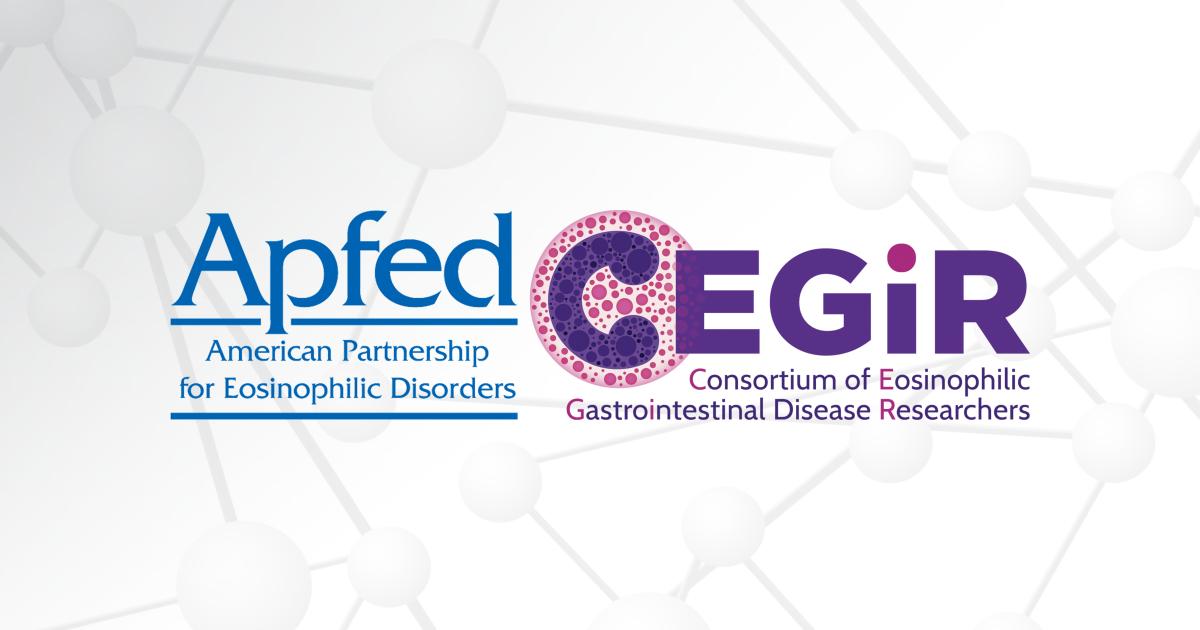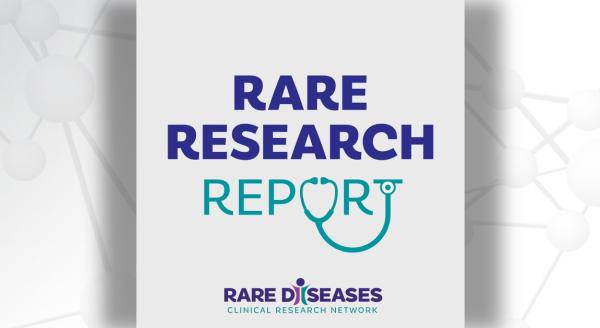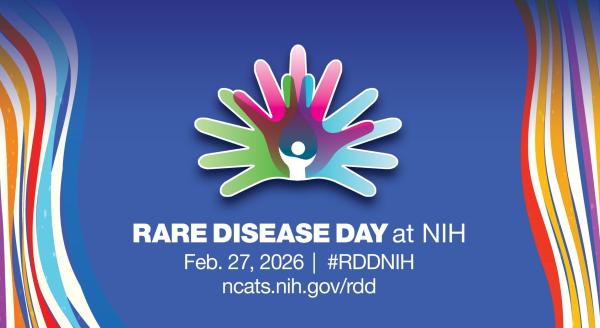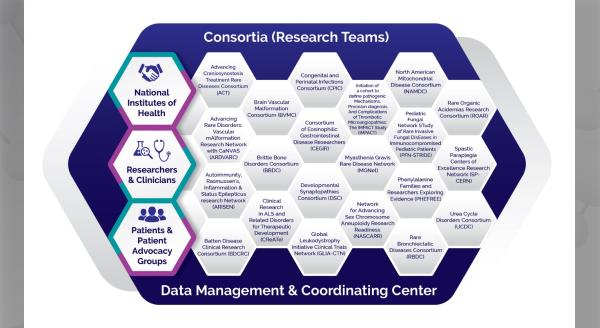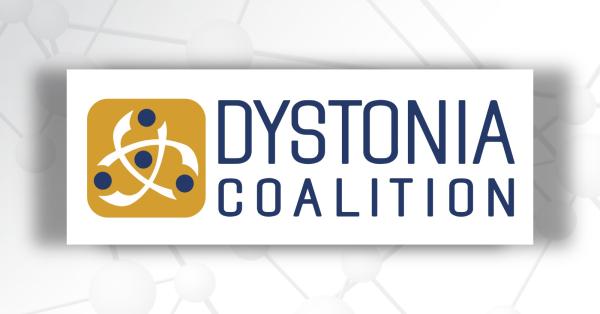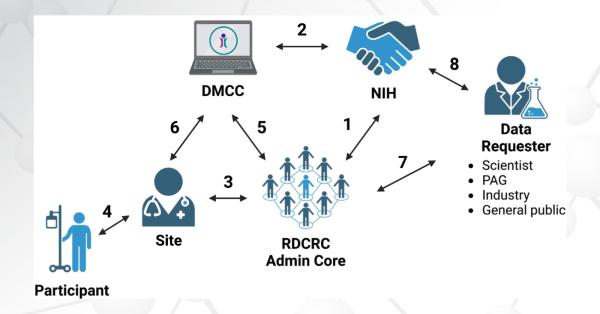The Consortium of Eosinophilic Gastrointestinal Disease Researchers (CEGIR) joined the Rare Diseases Clinical Research Network (RDCRN) in October 2013. RDCRN is an initiative of the Office of Rare Diseases Research at NCATS, NIH. CEGIR’s mission is to improve the lives of individuals with eosinophilic gastrointestinal disorders through innovative research, clinical expertise and education via collaborations between scientists, health care providers, patients, and professional organizations. The American Partnership for Eosinophilic Disorders (APFED) is one of several Patient Advocacy Groups (PAGs) collaborating with CEGIR to conduct research that is meaningful to our patient community.
APFED has played an important role on the CEGIR team from the beginning, including the initial grant application, providing input on research protocols, recruitment, training of young researchers, and communications.
Engaging the patient community
As part of CEGIR, one of APFED’s primary responsibilities is educating the patient community about the work the consortium is accomplishing. A variety of multimedia, patient-friendly communication tools are utilized to reach out to patients, caregivers, and health care professionals, including internet-based platforms (e.g., the APFED website, monthly e-newsletters, quarterly membership newsletters, online community through the Inspire™ network, and social media channels such as Facebook and Twitter); presentations at annual conferences and regional workshops; and print materials distributed at medical society meetings, fundraising events, and via mail.
Active participation in committee work
Patient advocates representing APFED also regularly participate in and contribute to CEGIR’s working committees, providing the patient perspective to researchers and trainees relative to priorities, research design and recruitment, and assisting in the development of resources in support of the consortium’s activities.
APFED took the lead in the development of lay-friendly content for the CEGIR website and continues to evaluate and make recommendations for content and site navigation improvements so that patients seeking information on the CEGIR website can better understand eosinophilic gastrointestinal diseases (EGIDs) and learn about the research that CEGIR is conducting.
To help guide CEGIR investigators through study design and protocol planning, APFED gathers input and feedback from patients and caregivers, enabling researchers to better assess patient needs, develop more purposeful surveys for the patient community, and improve messaging. APFED helps identify barriers to trial recruitment and collaborates with committee members to find solutions to overcome these barriers.
APFED initiated the design and content of recruitment marketing materials to be utilized by CEGIR clinicians and PAGs. These materials include clinical study flyers; study-specific, web-based graphics and social media messaging; study-specific communications to patients and healthcare providers within a specified geographic radius of recruiting clinic sites; and targeted communications to APFED’s Eosinophil. Connect patient registry program, managed by Patient Crossroads™.
APFED also provides additional support to the consortium by serving as the CEGIR liaison for the RDCRN Coalition of Patient Advocacy Groups (CPAG); participating in RDCRN committee calls; disseminating requests for applications (RFAs) on behalf of the RDCRN and the CEGIR Training Committee; providing logistical assistance for in-person meetings; and distributing RDCRN- and CEGIR-related information to the Coalition of Eosinophil Disease Patient Advocacy Groups (C-EOS), a group of like-minded organizations spearheaded by APFED to work in support of common initiatives.
Funding
To further support CEGIR’s activities, APFED has pledged supplement funding to support research activities of the consortium. This additional funding allows CEGIR to increase the scope of its work.
From the outset, CEGIR has actively promoted and welcomed a strong working relationship with its associated PAGs. With a collective goal to improve the lives of those living with EGIDs, all stakeholders are committed to a better understanding of EGIDs, developing improved and less invasive diagnostics, discovering new treatments, and eventually a cure!
To learn more about CEGIR, visit rdcrn.org/cegir.

